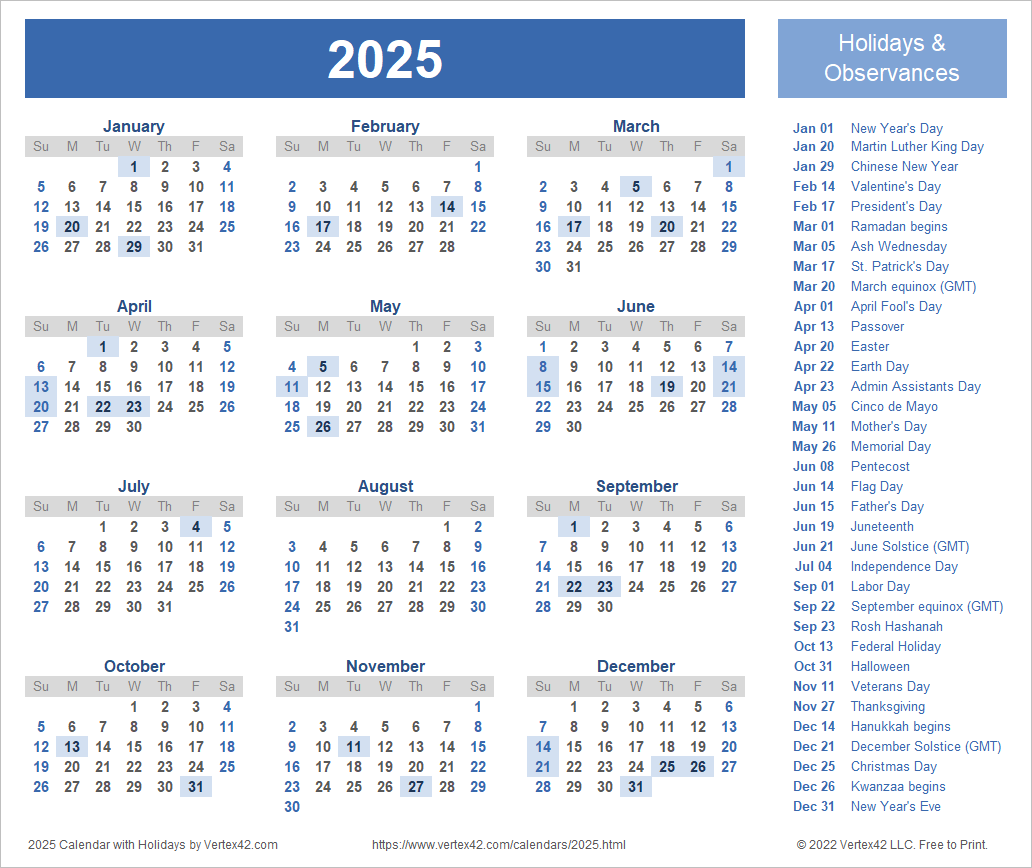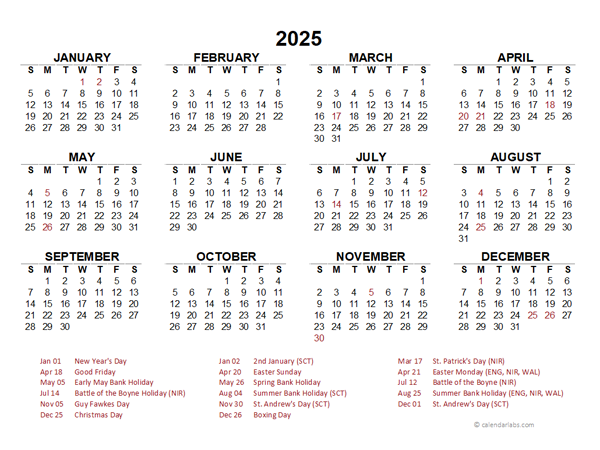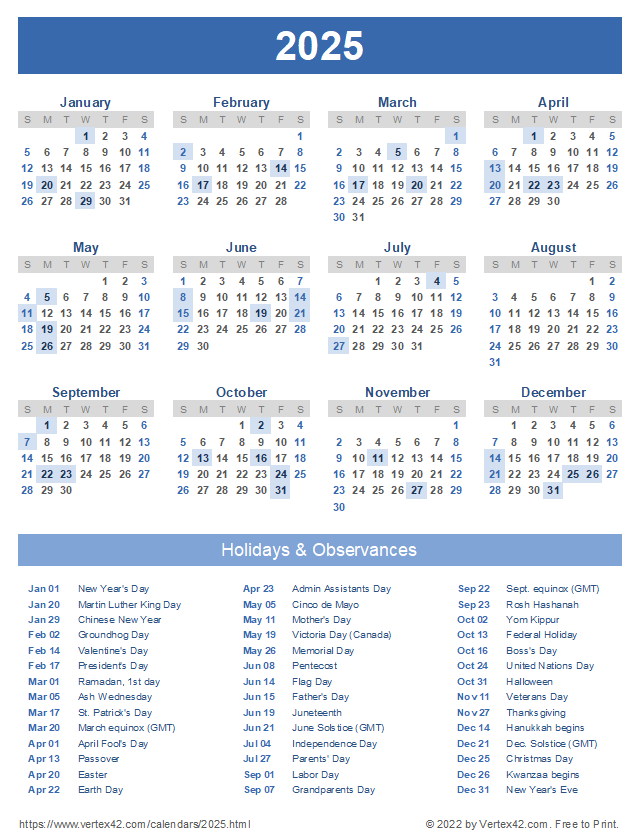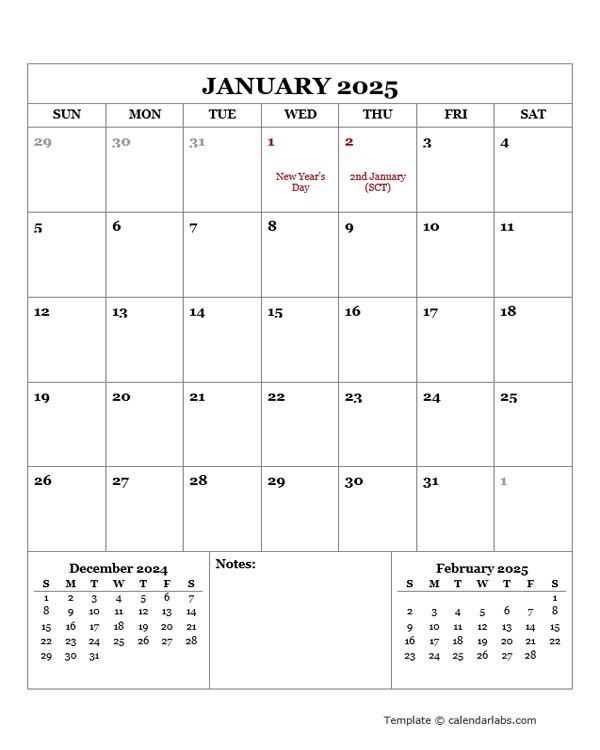2025 Calendar: UK Holidays and Observances
Related Articles: 2025 Calendar: UK Holidays and Observances
- Sarawak Calendar 2025: A Comprehensive Guide To Public Holidays And Cultural Events
- The A5 Calendar 2025: A Comprehensive Guide
- Diwali 2025 Date In India Calendar Gujarati
- Odia Calendar 2025 March: A Comprehensive Guide To The Oriya Panjika
- 2025 USA Calendar: A Comprehensive Guide
Introduction
In this auspicious occasion, we are delighted to delve into the intriguing topic related to 2025 Calendar: UK Holidays and Observances. Let’s weave interesting information and offer fresh perspectives to the readers.
Table of Content
Video about 2025 Calendar: UK Holidays and Observances
2025 Calendar: UK Holidays and Observances

The United Kingdom has a rich tapestry of cultural and historical traditions, which are reflected in the nation’s calendar of holidays and observances. These special days provide opportunities for celebration, remembrance, and reflection. In 2025, the UK will observe a diverse array of holidays, both secular and religious, offering a glimpse into the country’s vibrant heritage and contemporary society.
January
-
1 January (Thursday): New Year’s Day
- A public holiday marking the beginning of the Gregorian calendar year. A day of festivities, resolutions, and fresh starts.
-
6 January (Monday): Epiphany
- A Christian feast day commemorating the visit of the Three Wise Men to the infant Jesus. Traditionally celebrated with the sharing of a special cake called "King Cake."
February
-
14 February (Friday): Valentine’s Day
- A secular holiday dedicated to celebrating love and romance. A day for exchanging cards, chocolates, and flowers.
-
17 February (Monday): Shrove Monday
- The day before Ash Wednesday, marking the beginning of Lent. Traditionally celebrated with the consumption of pancakes.
-
18 February (Tuesday): Shrove Tuesday (Pancake Day)
- The last day before Lent, when Christians traditionally use up their eggs and dairy products by making and eating pancakes.
-
22 February (Saturday): Ash Wednesday
- The first day of Lent, a 40-day period of fasting and penitence in preparation for Easter.
March
-
1 March (Saturday): St. David’s Day
- The national day of Wales, commemorating the patron saint of Wales, Saint David. Celebrated with parades, traditional music, and the wearing of daffodils.
-
8 March (Saturday): International Women’s Day
- A global day celebrating the achievements of women and advocating for gender equality.
-
17 March (Monday): St. Patrick’s Day
- The national day of Ireland, commemorating the patron saint of Ireland, Saint Patrick. Celebrated worldwide with parades, green attire, and Irish festivities.
-
21 March (Friday): Spring Equinox
- The astronomical day when the sun crosses the celestial equator, marking the beginning of spring in the Northern Hemisphere.
April
-
7 April (Monday): Good Friday
- A Christian holiday commemorating the crucifixion of Jesus Christ. A day of solemn reflection and religious services.
-
9 April (Sunday): Easter Sunday
- A Christian holiday celebrating the resurrection of Jesus Christ. A day of joy, feasting, and the exchange of Easter eggs.
-
10 April (Monday): Easter Monday
- A public holiday following Easter Sunday, providing an extended weekend for family gatherings and leisure activities.
-
23 April (Wednesday): St. George’s Day
- The national day of England, commemorating the patron saint of England, Saint George. Celebrated with parades, traditional dances, and the display of the English flag.
May
-
1 May (Thursday): May Day
- A traditional spring festival celebrating the arrival of warmer weather. In the UK, it is often marked by dancing around a maypole and crowning a May Queen.
-
4 May (Sunday): Mother’s Day
- A day dedicated to honoring and celebrating mothers. Traditionally celebrated with gifts, flowers, and family gatherings.
-
25 May (Sunday): Ascension Day
- A Christian holiday commemorating the ascension of Jesus Christ into heaven.
June
-
1 June (Sunday): Pentecost
- A Christian holiday celebrating the descent of the Holy Spirit upon the apostles. Traditionally marked by the wearing of red or white clothing.
-
12 June (Thursday): Trooping the Colour
- An annual parade held in London to mark the official birthday of the British monarch. A spectacular display of military pageantry and tradition.
-
16 June (Monday): Father’s Day
- A day dedicated to honoring and celebrating fathers. Traditionally celebrated with gifts, outings, and family gatherings.
-
21 June (Saturday): Summer Solstice
- The astronomical day when the sun reaches its highest point in the sky, marking the beginning of summer in the Northern Hemisphere.
July
-
1 July (Tuesday): Tynwald Day
- The national day of the Isle of Man, commemorating the annual meeting of the Tynwald Court, the island’s parliament.
-
12 July (Saturday): Orangemen’s Day
- A public holiday in Northern Ireland, commemorating the victory of Protestant King William of Orange over Catholic King James II at the Battle of the Boyne in 1690.
August
-
4 August (Monday): Bank Holiday
- A public holiday in the UK, providing an extended weekend in the summer months.
-
25 August (Sunday): Notting Hill Carnival
- A vibrant and colorful street festival held in London, celebrating Caribbean culture with music, dance, and elaborate costumes.
September
-
1 September (Monday): Bank Holiday
- A public holiday in the UK, providing an extended weekend at the end of the summer.
-
23 September (Tuesday): Autumn Equinox
- The astronomical day when the sun crosses the celestial equator, marking the beginning of autumn in the Northern Hemisphere.
October
-
31 October (Friday): Halloween
- A traditional festival of Celtic origin, associated with ghosts, witches, and supernatural beings. Celebrated with costumes, trick-or-treating, and bonfires.
November
-
1 November (Saturday): All Saints’ Day
- A Christian holiday honoring all Christian saints. Traditionally observed with prayers, church services, and visits to cemeteries.
-
2 November (Sunday): All Souls’ Day
- A Christian holiday dedicated to praying for the souls of the deceased.
-
11 November (Tuesday): Remembrance Day
- A day of remembrance for those who have died in war. Observed with solemn ceremonies, wreath-laying, and the wearing of poppies.
-
13 November (Thursday): Diwali
- A Hindu festival of lights, symbolizing the victory of good over evil. Celebrated with fireworks, lamps, and family gatherings.
December
-
25 December (Thursday): Christmas Day
- A Christian holiday celebrating the birth of Jesus Christ. A day of religious services, gift-giving, and family gatherings.
-
26 December (Friday): Boxing Day
- A public holiday following Christmas Day, traditionally associated with giving gifts to servants and tradespeople. Now a popular day for shopping and sporting events.
Additional Observances
In addition to the official public holidays, the UK observes several other significant days throughout the year. These observances may not be public holidays, but they are widely recognized and celebrated by various communities and organizations.
-
Burns Night (25 January): A celebration of the life and works of Scottish poet Robert Burns, featuring traditional food, music, and recitals of his poetry.
-
Chinese New Year (Variable): A traditional Chinese festival marking the beginning of the lunar new year, celebrated with fireworks, parades, and family gatherings.
-
Holi (Variable): A Hindu festival of colors, symbolizing the arrival of spring. Celebrated with the throwing of colored powder and water.
-
Eid al-Fitr (Variable): A Muslim festival marking the end of the fasting month of Ramadan, celebrated with prayers, feasting, and gift-giving.
-
Eid al-Adha (Variable): A Muslim festival commemorating the sacrifice of Prophet Abraham, celebrated with prayers, animal sacrifices, and family gatherings.
-
Hanukkah (Variable): A Jewish festival of lights, commemorating the victory of the Maccabees over the Seleucid Greeks. Celebrated with the lighting of a menorah and the eating of traditional foods.
Conclusion
The 2025 calendar of holidays and observances in the UK offers a rich tapestry of cultural, religious, and traditional events. These special days provide opportunities for celebration, remembrance, and reflection, offering a glimpse into the diverse heritage and contemporary society of the United Kingdom. From the solemn ceremonies of Remembrance Day to the vibrant festivities of Notting Hill Carnival, the UK’s holidays and observances reflect the nation’s rich history and its embrace of diverse cultures and traditions.








Closure
Thus, we hope this article has provided valuable insights into 2025 Calendar: UK Holidays and Observances. We appreciate your attention to our article. See you in our next article!